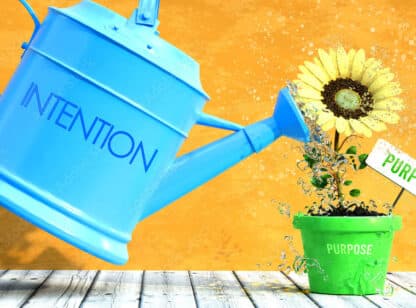When my sons were teenagers, they would ask me to talk in my “baby voice,” which I usually did on a moment’s notice just to make them giggle like when they were little. You see, this baby voice was like a Saturday Night Live bit. She was one foul-mouthed, pissed off baby. For a few moments, Mom transcended into her spontaneous, playful self, relinquishing all parental responsibilities and ideals. They wanted play and they were going to get it. They even introduced their friends to this wildcard character saying, “Mom! Do the baby voice for my friends!” The looks on their friends’ faces was priceless with, “That’s pretty cool,” or a chuckle, “Your mom’s pretty strange.”
Now that my kids are grown and have children of their own, my baby voice has now been introduced to my grandchildren, minus the foul-mouth part of course. The complete unadulterated silliness that comes over me when we are playing “Monster” gets squeals of joy from the little ones, but puzzled looks from their parents. My inner child is one happy camper because my emotionally healthy inner child is alive and well.
Let’s explore the other side of the spectrum. A child who grows up with trauma from primary caregivers dealing with addiction, domestic violence, and/or neglect can lose their childhood innocence. What once was the healthy, fun-loving inner child can morph into a fearful, emotionally hypervigilant kid called the wounded inner child. The childlike, in-the-moment joy-filled spontaneity can often be replaced with a sense of primal survival. The child might be wondering if they were bad, wrong, not good or smart enough and asking themselves, “What did I do wrong?” The child might also subconsciously wonder what will happen to them. Since a young child, age six to approximately 11, is in the ‘concrete’ stage of development, they cannot yet grasp abstract thought or thinking outside the box. So, everything is perceived as black and white, all or nothing.
Fast forward to adulthood. The wounded inner child lives on. This is the 40-year-old person with a sad, angry, resentful, hurt, and lonely child within that yearns to be noticed, loved, attended to, and comforted. So, what does this wounded inner child do? She wreaks havoc in her adult relationships. She wasn’t valued, prized or loved so she’s going to let everyone know about it. Her mantra is, “I won’t grow up, and I’m not going to let my adult self grow up either; not if I have anything to do about it!”
And my therapeutic mantra? You either become it or marry it, unless you explore it.
How can you quiet the wounded inner child so that you have a chance to be happy, purposeful and content? How can you make your adult relationships thrive?
First, notice the child within. She’s there waiting for your acknowledgement. It might appear silly, but we all have a child within. You can then be her new, emotionally healthy parent; the parent she yearned for all along – someone loving, affirming and safe. Speak softly with her, tell her you’re there for her and that you love her and will never leave her. Tell her she doesn’t have to cause conflict in your life. She can just be a kid now. And, let her jump on in – right next to your heart where she can remain safe and cherished.
And, once she becomes accustomed to this new state of being, feel free to introduce her to your playful (and maybe pissy) baby voice where silly laughter can become the norm.
Amy Austin is a licensed marriage and family therapist (MFC# 41252) and doctor of clinical psychology in Rancho Mirage. Dr. Amy can be reached at (760) 774.0047.

















































Comments (0)